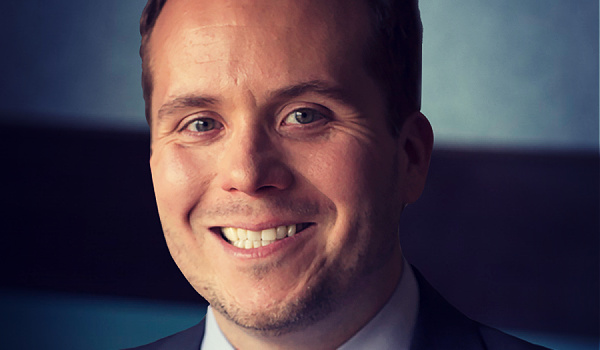By Daniel Crosby
Millions of people have started off the new year with a commitment to make 2021 different. This is the year that you and your clients are going to eat right, exercise, save more, and start that business.
Except… you probably won’t. That’s not a personal slight; it’s simply the truth that only 19% of those who set written goals for the new year achieve them. But with a deeper understanding of human nature and a few small tweaks, you too can find yourself in that happy minority, whether you’re an advisor growing their business, or an investor striving to meet their financial goals.
Why Do Goals Fail?
Just as good investment management considers risk management before potential upside, good goal setting considers plainly why most goals fail. Here are just a few reasons:
1. Too Ambitious
Perhaps the biggest reason resolutions fail is that the goals we choose are too ambitious. Lasting behavioral change occurs incrementally, and it’s far more likely that you will make directional progress than wholesale changes to your lifestyle.
If you haven’t run in years, start with a 5k and not a marathon. Once you’ve completed the 5k, proceed to the 10k, the half marathon, and then on to the marathon. A behavior in motion tends to stay in motion; it is by a series of small things are great things brought to pass!
2. Wrong Time Frame
The traditional new year’s goal setting has a motivational bug from the get-go: We view ourselves as incomplete until the goal is reached. Let’s say your goal is to hit a certain number in new business development. Every day until you reach that goal, you’re inadequate, which is inherently discouraging.
Instead, try dividing your goal into a series of manageable daily, weekly, and monthly tasks. Perhaps to reach your sales goal, you realize that you’ll need to contact 20 new leads. With this new approach and time horizon, you’re a winner each and every day that you contact those 20 prospects. This approach has the dual benefit of concretizing your action plan and making you feel like a success along the way.
3. Lack of Understanding
Often, we have considered an outcome without adequately thinking through the process necessary to achieve it. One great example is “becoming a millionaire.” This is a widely held goal, but as Morgan Housel points out in The Psychology of Money, “When most people say they want to be a millionaire, what they really mean is ‘I want to spend a million dollars’ which is literally the opposite of being a millionaire.”
Spending a million dollars is fun. The sacrifice, hard work, and dedication required to become a millionaire has less immediate appeal. Before adding that goal to your list of resolutions, think not only about the desired outcome, but about the process that it will take to achieve it.
4. Lack of Real Purpose
Another reason new year’s resolutions may fall flat is that they lack true personal significance. Philosophers have long talked of the “they-self” or the values that are unthinkingly adopted from the crowd rather than being explicitly chosen because they hold personal meaning.
Examples of potential “they-self” values include the pursuit of fame and wealth, which certainly both have upsides, but are often uncritically placed at the center of one’s life. If you find yourself unmotivated to pursue your goal, it may be that you’ve chosen a goal that is more important to others in your life (or to society at large) than to you.
5. The Wrong Environment
We like to think of ourselves as paragons of self-discipline, able to stay true to our goals and objectives no matter what surrounds us. The truth is, the single best predictor of whether or not you’ll reach your goals is how well situated your environment is to facilitate those goals.
What does that mean? It means surrounding yourself with people who will motivate and challenge you, automating and routinizing everything about your goal so that it becomes a daily habit, reducing friction points that make it difficult to achieve, and celebrating wins when you cross appropriate thresholds. My years of studying human behavior have taught me that there is no fixed you, there is only you in context. Make sure that the people, places, and ideas that form your context are consistent with who you truly want to be.
Make This Year Your Best Year
Now that you know a bit more about why goals fail, my challenge to you this week is to pick one of the five obstacles above and apply its lessons to your pursuit of personal excellence. We may be coming out of a year that was almost universally difficult, and the year ahead looks to hold its own challenges. But with an improved understanding of your own behavior and by avoiding the five pitfalls above, I truly believe that it can be your best year ever.
Dr. Daniel Crosby is Chief Behavioral Officer at Orion Advisor Solutions, and a psychologist and behavioral finance expert who helps organizations understand the intersection of mind and markets. Dr. Crosby recently co-authored a New York Times Best-Selling book titled, “Personal Benchmark: Integrating Behavioral Finance and Investment Management“.







